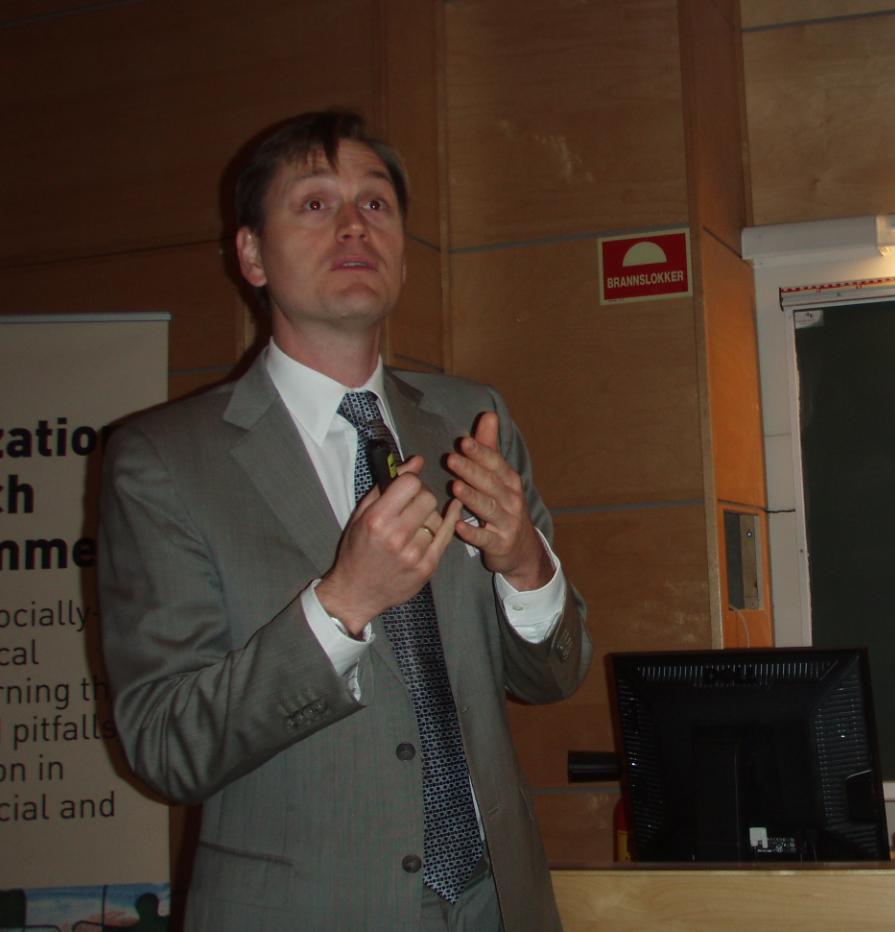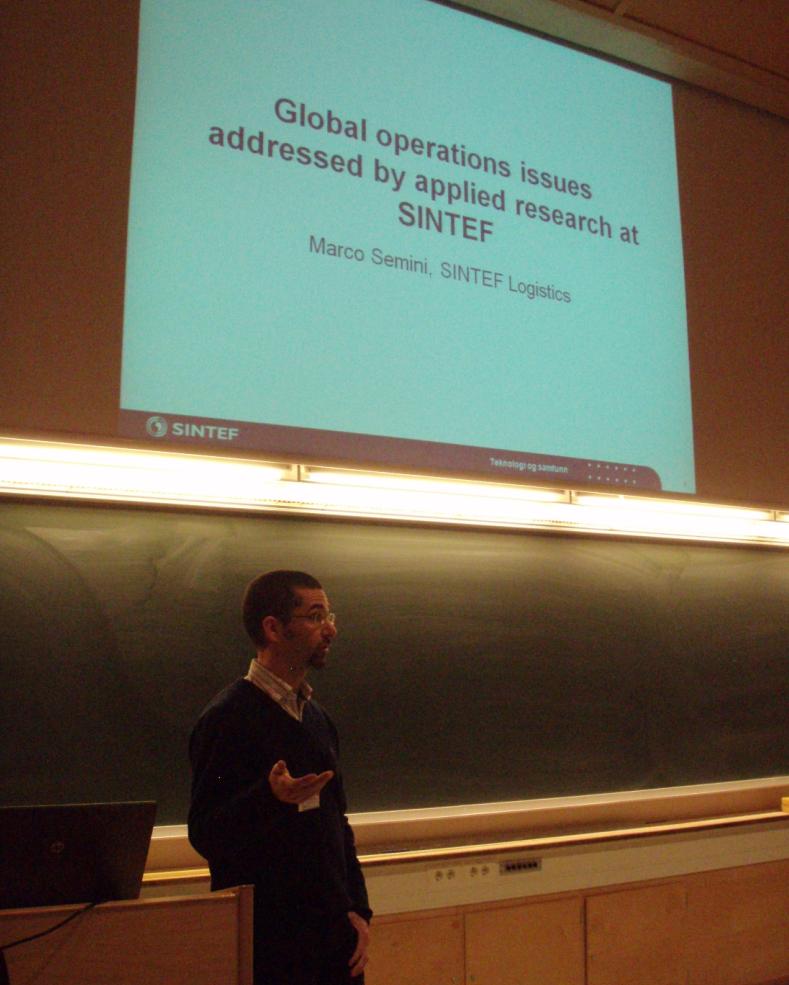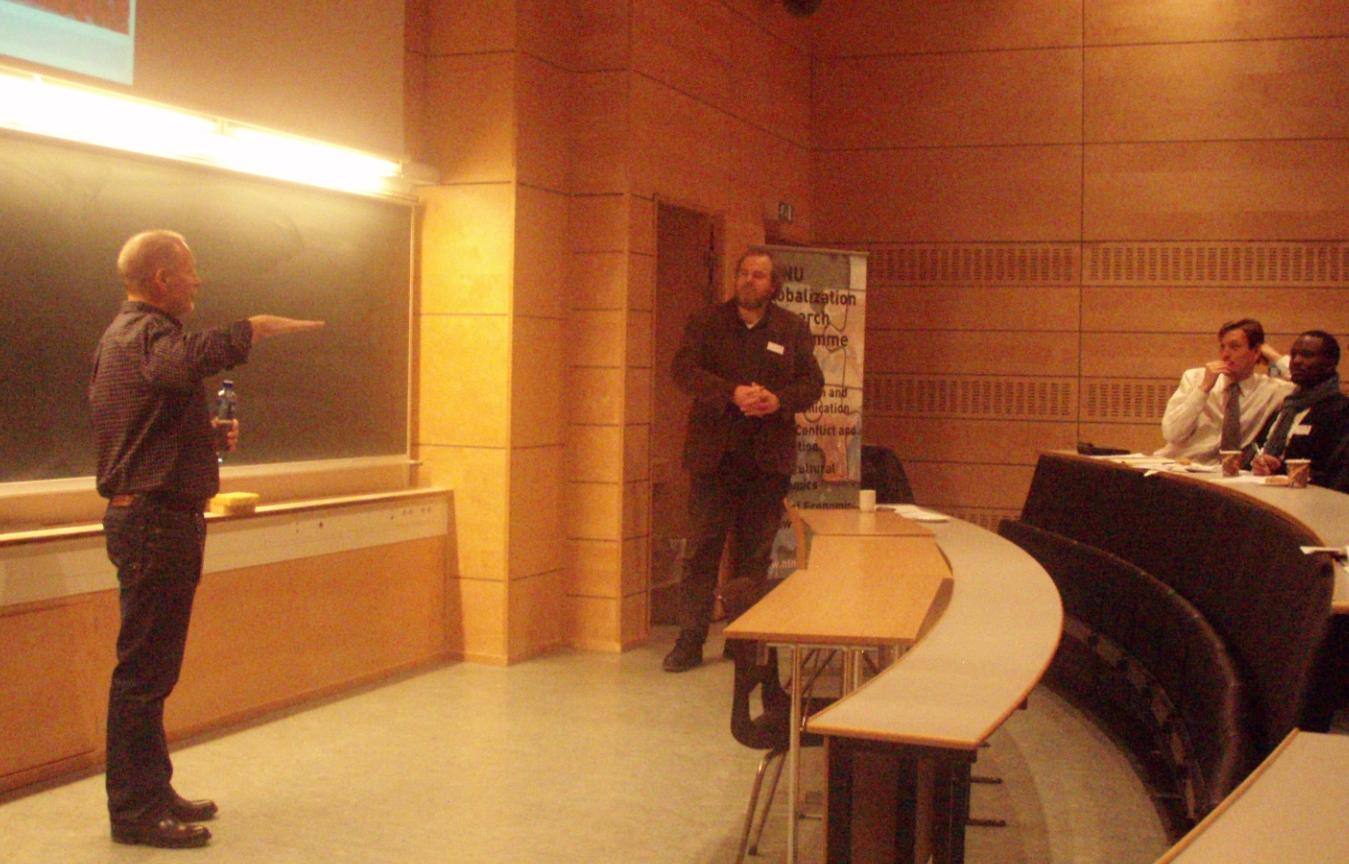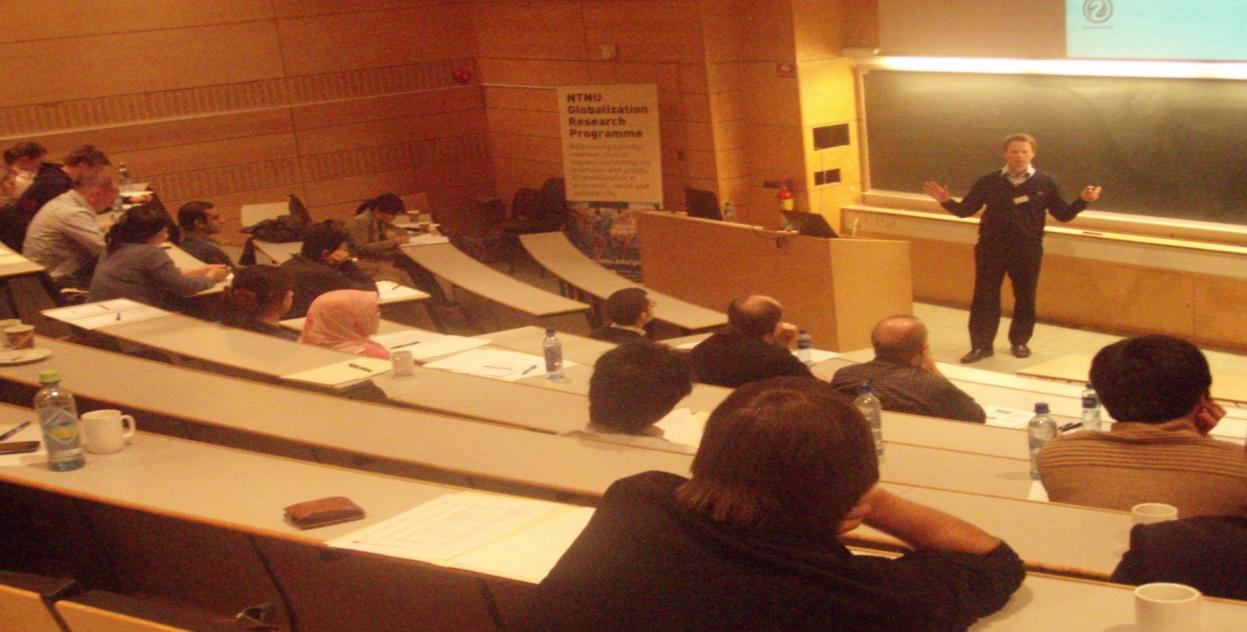|
18.11.2011 Global operations and the challenges of operating internationally
Many companies today are consistently asking themselves: "How do we most effectively and efficiently design and operate our global production network?", "How is effective coordination and communication achieved across functions and locations?" These and related questions will be addressed at a free seminar at Gløshaugen on the 18th of November 2011.
The seminar is organised by researchers from the Department of Industrial Economics and Technology Management (IØT) and SINTEF Technology and Society, with funding from NTNU’s Globalization programme and in particular the Global Production and Communication (GP&C) research group, as well as from SINTEF’s MARGIN project, CRI Norman and the SMARTLOG Network. The objective of the seminar is to bring together researchers, practitioners and students and share experiences and research results in order to learn more about how firms can successfully operate in increasingly international networks that connect suppliers, operations and customers.
Key-note speaker is Dr. Michael Mol from Warwick Business School (UK). Industry contributions come from Kongsberg Maritime and Aqualine. The detiled programme can be downloaded here. For further information, contact or . Ex post report The seminar, which was held at the NTNU Gløshaugen campus, attracted over 50 participants including researchers, practitioners and students.Dr. Michael Mol, an accomplished strategy and international business scholar from Warwick Business School (UK) was the key note speaker at the event, where also researchers including Godfrey Mugurusi (NTNU) and Marco Semini (SINTEF) shared experiences and research. Industry executives Arne Otto Flataas (Kongsberg Maritime) and Ståle Sæther (Aqualine) shared practices, successes and challenges involved when companies operate and deal with suppliers, networks and customers that span across the globe. Dr. Mol described the ways companies operate in a global paradigm as “messy reality”, but was swift to propose a structured (not a recipe) approach on how they could go about the international operations in a more procedural way. Godfrey presented his PhD work that draws inspiration from the “viable systems model” to understand how globally dispersed companies go about the process of “offshoring” but also how they organise and coordinate their operations, especially purchasing activities. Marco Semini presented SINTEF’s work with numerous Norwegian companies and emphasised how these companies leveraged their internal capabilities in the global market to remain competitive in both the short and long-term. Marco went on to highlight two key points for companies: one, that what, why and how companies offshore and how they carry out global operations differs, and two, that competitive solutions depended on product, market and industry characteristics. From industry, Arne Otto Flataas from Kongsberg Maritime shared some of the company’s successes and challenges with their offshore operations in China (Zhenjiang, Jiangsu) and Korea (Busan). Arne’s presentation emphasised the importance of having a good human resource function and the fact that while China offers big opportunities for growth, customs bureaucracy and cultural differences pose problems in achieving that growth. Ståle Sæther from Aqualine, a company that designs and installs floating fish farming cages and mooring systems, emphasised the role of coordinated shipping in their operations and quality as key starting points for each unique customer project. The biggest challenge for Aqualine was coordinating the whole operation from Norway, yet sourcing system components from all over the world. This, Ståle observed, had extensive challenges to the company’s just-in-time principle, especially when production stopped because only a single component was missing. The event concluded after parallel discussions where companies shared their challenges in more detail with participants in order to map out possible solutions. A common message from the two companies, ‘learning by doing’ left a big impression to the participants. In closing the seminar, Professor Luitzen de Boer, the event’s moderator, mooted the need for companies to seek more synergies with researchers and always attend such knowledge sharing workshops when invited. This was the fourth in a series of seminars organised with funding and support from NTNU’s Globalisation programme, IØT and SINTEF, and once again, it was a great success! See some photos below. Michael Mol
Marco Semini
Arne Otto Flataas, Luitzen de Boer, Michael Mol and Godfrey Mugurusi
Ståle Sæther |
| |




